Still think the Civil War wasn't fought over slavery? The Confederate states would disagree.

Was the Civil War fought over slavery or states' rights? People love to debate this question, and many seem to believe it's a matter of opinion.
But the truth is there's no debate to be had. We don't have to conjecture. We know that the Confederate states' primary motive was maintaining the right to enslave black people because they said so themselves.
We have the primary documents that explain, in detail, why Confederates wanted to break off from the U.S., and they are eye-opening to say the least. Even those who already understand slavery to be the primary cause of the Civil War may be shocked to see how blatantly and proudly the Southern states announced their intention to defend white supremacy and their right to own black people.
MARCH 21, 1861 SPEECH BY VICE PRESIDENT OF THE CONFEDERACY, ALEXANDER STEPHENS
First let's take a look at a speech given by Alexander Stephens, Vice President of the Confederacy, just a few weeks before the Civil War officially began. After describing some details of the Confederacy's Constitution, Vice President Stephens stated that slavery was the "immediate cause" of the South's "revolution."
"But not to be tedious in enumerating the numerous changes for the better, allow me to allude to one other though last, not least. The new constitution has put at rest, forever, all the agitating questions relating to our peculiar institution, African slavery as it exists amongst us – the proper status of the negro in our form of civilization. This was the immediate cause of the late rupture and present revolution. Jefferson in his forecast, had anticipated this, as the 'rock upon which the old Union would split.' He was right. What was conjecture with him, is now a realized fact."
I mean, he said it right there. Slavery of black people was the "immediate cause" of secession and the impending war.
But he didn't stop there. No, he laid out the entire racist foundation of the new government in no uncertain terms.
"The prevailing ideas entertained by him [Jefferson] and most of the leading statesmen at the time of the formation of the old constitution, were that the enslavement of the African was in violation of the laws of nature; that it was wrong in principle, socially, morally, and politically. It was an evil they knew not well how to deal with, but the general opinion of the men of that day was that, somehow or other in the order of Providence, the institution would be evanescent and pass away . . . Those ideas, however, were fundamentally wrong. They rested upon the assumption of the equality of races. This was an error. It was a sandy foundation, and the government built upon it fell when the 'storm came and the wind blew.'
Our new government is founded upon exactly the opposite idea; its foundations are laid, its corner-stone rests, upon the great truth that the negro is not equal to the white man; that slavery—subordination to the superior race—is his natural and normal condition. This, our new government, is the first, in the history of the world, based upon this great physical, philosophical, and moral truth."
Hmmm, so the South literally founded the Confederate government on the idea that slavery wasn't just acceptable, but that black people were actually supposed to be enslaved. This was stated plainly and proudly.
Need a moment? Yeah, me too. Take a deep breath, because we're just getting going here.
RELATED: This West Point colonel will tell you what the Civil War was really about.
Moving on, Stephens called the Northern abolitionists "fanatics," saying, "They assume that the negro is equal, and hence conclude that he is entitled to equal privileges and rights with the white man. If their premises were correct, their conclusions would be logical and just but their premise being wrong, their whole argument fails. . . ."
There's more.
"With us, all of the white race, however high or low, rich or poor, are equal in the eye of the law. Not so with the negro. Subordination is his place. He, by nature, or by the curse against Canaan, is fitted for that condition which he occupies in our system."
Stephens then went on to explain how God designed humanity so that one race would be subordinate to another, and that going against slavery is going against "the ordinance of the Creator."
It seriously could not be more clear: The Confederates were proud white supremacists who wanted to build a country around that ideal.
Lest anyone argue that this was just one speech or just one man's opinion, or that maybe Stephens didn't speak for the whole Confederacy (despite being Vice President of it), let's look at what the Confederate states themselves said.
DECLARATION OF THE CAUSES OF SECEDING STATES, 1861
In addition to the Ordinances of Secession announcing the departure of each of the Confederate states from the U.S., a handful of Southern states issued a Declaration of the Causes of Seceding States, explaining in detail why they felt they needed to leave the Union.
You can read the document in its entirety here, but let's take a look at some highlights. (The first thing to note is that some iteration of the word "slave" appears 83 times in these declarations. So, yeah.)
GEORGIA
Right out of the gate, Georgia let everyone know that slavery is at the forefront of its concerns. The second sentence of their declaration reads:
"For the last ten years we have had numerous and serious causes of complaint against our non-slave-holding confederate States with reference to the subject of African slavery."
Okay then.
As we read through Georgia's lengthy history lesson of how the states got to this point, it's worth noting that they rarely referred to the "Northern" and "Southern" states. Instead, they referred to "non-slaveholding states" and "slave-holding states." That alone ought to be a clue as to their motivations.
But if that's not enough, here's where Georgia stated that the Republican Party's anti-slavery stance justified its decision to leave the Union.
"A brief history of the rise, progress, and policy of anti-slavery and the political organization into whose hands the administration of the Federal Government has been committed will fully justify the pronounced verdict of the people of Georgia. The party of Lincoln, called the Republican party, under its present name and organization, is of recent origin. It is admitted to be an anti-slavery party. While it attracts to itself by its creed the scattered advocates of exploded political heresies, of condemned theories in political economy, the advocates of commercial restrictions, of protection, of special privileges, of waste and corruption in the administration of Government, anti-slavery is its mission and its purpose. By anti-slavery it is made a power in the state. The question of slavery was the great difficulty in the way of the formation of the Constitution.
While the subordination and the political and social inequality of the African race was fully conceded by all, it was plainly apparent that slavery would soon disappear from what are now the non-slave-holding States of the original thirteen."
Finally, they summed up how racial equality and the prohibition of slavery, being the primary concern of the non-slaveholding states, was something they simply would not abide.
"The prohibition of slavery in the Territories, hostility to it everywhere, the equality of the black and white races, disregard of all constitutional guarantees in its favor, were boldly proclaimed by its leaders and applauded by its followers.
With these principles on their banners and these utterances on their lips the majority of the people of the North demand that we shall receive them as our rulers.
The prohibition of slavery in the Territories is the cardinal principle of this organization.
For forty years this question has been considered and debated in the halls of Congress, before the people, by the press, and before the tribunals of justice. The majority of the people of the North in 1860 decided it in their own favor. We refuse to submit to that judgment, and in vindication of our refusal we offer the Constitution of our country and point to the total absence of any express power to exclude us."
Thank you, Georgia, for clarifying your position.
MISSISSIPPI
Again, right out the gate, Mississippi told everyone that slavery is their main reason for seceding. Here's how their declaration begins, no sentences skipped:
"In the momentous step which our State has taken of dissolving its connection with the government of which we so long formed a part, it is but just that we should declare the prominent reasons which have induced our course.
Our position is thoroughly identified with the institution of slavery—the greatest material interest of the world."
Once they made that clear, they explained how they simply couldn't live without slavery because black people were made to tend their crops.
"Its labor supplies the product which constitutes by far the largest and most important portions of commerce of the earth. These products are peculiar to the climate verging on the tropical regions, and by an imperious law of nature, none but the black race can bear exposure to the tropical sun. These products have become necessities of the world, and a blow at slavery is a blow at commerce and civilization. That blow has been long aimed at the institution, and was at the point of reaching its consummation. There was no choice left us but submission to the mandates of abolition, or a dissolution of the Union, whose principles had been subverted to work out our ruin. That we do not overstate the dangers to our institution, a reference to a few facts will sufficiently prove."
Mississippi just stated that their only choices were to give up slavery or secede. And if that still seems unclear somehow, here are some of the "facts" they included for why they couldn't stay in the Union:
"It has grown until it denies the right of property in slaves, and refuses protection to that right on the high seas, in the Territories, and wherever the government of the United States had jurisdiction."
"It refuses the admission of new slave States into the Union, and seeks to extinguish it by confining it within its present limits, denying the power of expansion."
"It has nullified the Fugitive Slave Law in almost every free State in the Union, and has utterly broken the compact which our fathers pledged their faith to maintain."
"It advocates negro equality, socially and politically, and promotes insurrection and incendiarism in our midst."
"It has made combinations and formed associations to carry out its schemes of emancipation in the States and wherever else slavery exists."
How can anyone say that the war wasn't about slavery at this point?
SOUTH CAROLINA
South Carolina's declaration started off sounding like it was all about "FREE AND INDEPENDENT STATES," as they used that all-caps phrase repeatedly in recounting the history of why the colonies broke off from England. But when they got into their specific grievances with the Union, guess what they complained about. Yup, slavery.
"The General Government, as the common agent, passed laws to carry into effect these stipulations of the States. For many years these laws were executed. But an increasing hostility on the part of the non-slaveholding States to the institution of slavery, has led to a disregard of their obligations, and the laws of the General Government have ceased to effect the objects of the Constitution."
They went on and on about non-slaveholding states trying to control their "property" and "institutions." We could guess what they meant by that, but we don't have to because they told us.
"Those States have assume [sic] the right of deciding upon the propriety of our domestic institutions; and have denied the rights of property established in fifteen of the States and recognized by the Constitution; they have denounced as sinful the institution of slavery; they have permitted open establishment among them of societies, whose avowed object is to disturb the peace and to eloign the property of the citizens of other States. They have encouraged and assisted thousands of our slaves to leave their homes; and those who remain, have been incited by emissaries, books and pictures to servile insurrection."
They even got specific about states that passed anti-slavery laws, which they claimed went against the Constitution.
"The State of New Jersey, at an early day, passed a law in conformity with her constitutional obligation; but the current of anti-slavery feeling has led her more recently to enact laws which render inoperative the remedies provided by her own law and by the laws of Congress. In the State of New York even the right of transit for a slave has been denied by her tribunals; and the States of Ohio and Iowa have refused to surrender to justice fugitives charged with murder, and with inciting servile insurrection in the State of Virginia. Thus the constituted compact has been deliberately broken and disregarded by the non-slaveholding States, and the consequence follows that South Carolina is released from her obligation."
Again, South Carolina was clear that the North's hostility toward slavery was what drove them to break away, thereby leading to war.
TEXAS
Ah, Texas. If you thought the deep south was the only place that gleefully celebrated the enslavement of black people, take a look at the Lone Star State's declaration. It's a doozy.
RELATED: A school assignment asked for 3 benefits of slavery. This kid gave the only good answer.
First, here's how Texas described being accepted into the Confederacy:
"She [Texas] was received as a commonwealth holding, maintaining and protecting the institution known as negro slavery—the servitude of the African to the white race within her limits—a relation that had existed from the first settlement of her wilderness by the white race, and which her people intended should exist in all future time."
So, not only is white people enslaving black people fine and dandy—it's a subjugation that should go on forever and ever. Got it.
"In all the non-slave-holding States, in violation of that good faith and comity which should exist between entirely distinct nations, the people have formed themselves into a great sectional party, now strong enough in numbers to control the affairs of each of those States, based upon an unnatural feeling of hostility to these Southern States and their beneficent and patriarchal system of African slavery, proclaiming the debasing doctrine of equality of all men, irrespective of race or color-- a doctrine at war with nature, in opposition to the experience of mankind, and in violation of the plainest revelations of Divine Law. They demand the abolition of negro slavery throughout the confederacy, the recognition of political equality between the white and negro races, and avow their determination to press on their crusade against us, so long as a negro slave remains in these States."
Sorry, I need to pause for a second. "Their beneficent and patriarchal system of African slavery"? And "the debasing doctrine of equality of all men"? The state of Texas said here that equality was not just unnatural but against God's law. We all know that racism was the standard of the day, but I don't think most of us were taught how deeply held these white supremacist beliefs were in the South's own words.
And again, they weren't done.
"We hold as undeniable truths that the governments of the various States, and of the confederacy itself, were established exclusively by the white race, for themselves and their posterity; that the African race had no agency in their establishment; that they were rightfully held and regarded as an inferior and dependent race, and in that condition only could their existence in this country be rendered beneficial or tolerable."
Still not done...
"That in this free government *all white men are and of right ought to be entitled to equal civil and political rights* [emphasis in the original]; that the servitude of the African race, as existing in these States, is mutually beneficial to both bond and free, and is abundantly authorized and justified by the experience of mankind, and the revealed will of the Almighty Creator, as recognized by all Christian nations; while the destruction of the existing relations between the two races, as advocated by our sectional enemies, would bring inevitable calamities upon both and desolation upon the fifteen slave-holding states."
"Mutually beneficial to both bond and free." Oh yes, those lucky slaves, living just as the Almighty intended.
If you wonder why people see the Confederate flag as a racist symbol, this is why. If you wonder why honoring the leaders of the Confederacy with monuments and holidays is horrifically problematic, this is why.
We have it straight from the Confederates' mouths. The Civil War was fought because the South wanted the right to keep slavery and the North wanted to abolish it. People can say it was about states' rights, but it's disingenuous to omit the primary moral, political, and economic right the South was fighting to maintain—the legal and systematic subjugation and enslavement of black people.
They seriously could not have been any clearer about it.
- An epic new ad from Republicans explains why Confederate flags are shameful and treasonous - Upworthy ›
- An epic new ad from Republicans explains why Confederate flags are shameful and treasonous - Upworthy ›
- Mississippi town mayor fights back tears as he signs order to remove confederate flags - Upworthy ›
- 'Irish slaves' post that's been shared nearly a million times is basically 100% false - Upworthy ›
- When the first Black senator elected in Georgia was expelled in 1868, he responded with a speech of thunderous defiance. - Upworthy ›
- The last living spouse of a Civil War veteran has died - Upworthy ›
- Classroom slide listing pros and cons of slavery is horrific - Upworthy ›
- Voice recordings of people who were enslaved offer incredible first-person accounts of U.S. history - Upworthy ›
- Texas church to donate $13 million to help those hurt by their slave-owning, confederate supporting history - Upworthy ›
- It's time for Mississippi to end Confederate Heritage Month - Upworthy ›
- 'Drapetomania' was coined to explain why slaves ran away - Upworthy ›
- Enslaved man stole a Confederate ship and sailed to freedom - Upworthy ›
- The Statue of Liberty originated out of slavery not immigration - Upworthy ›


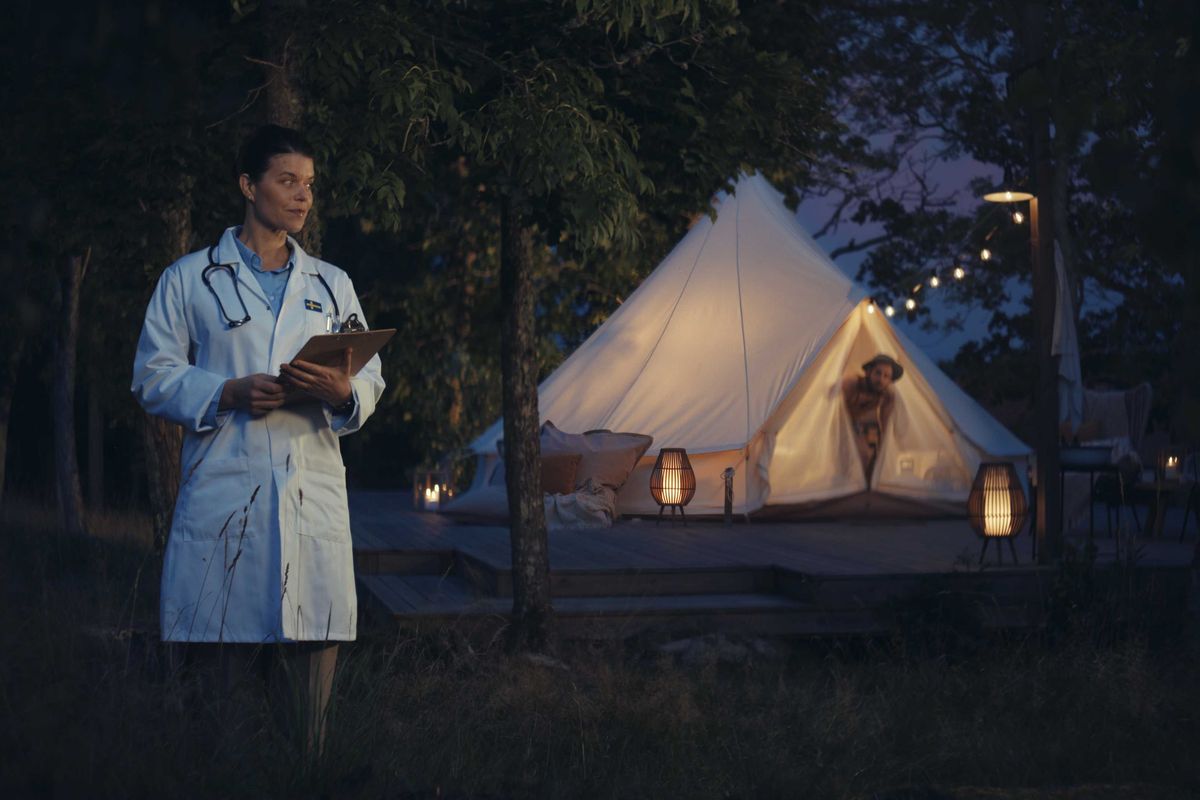
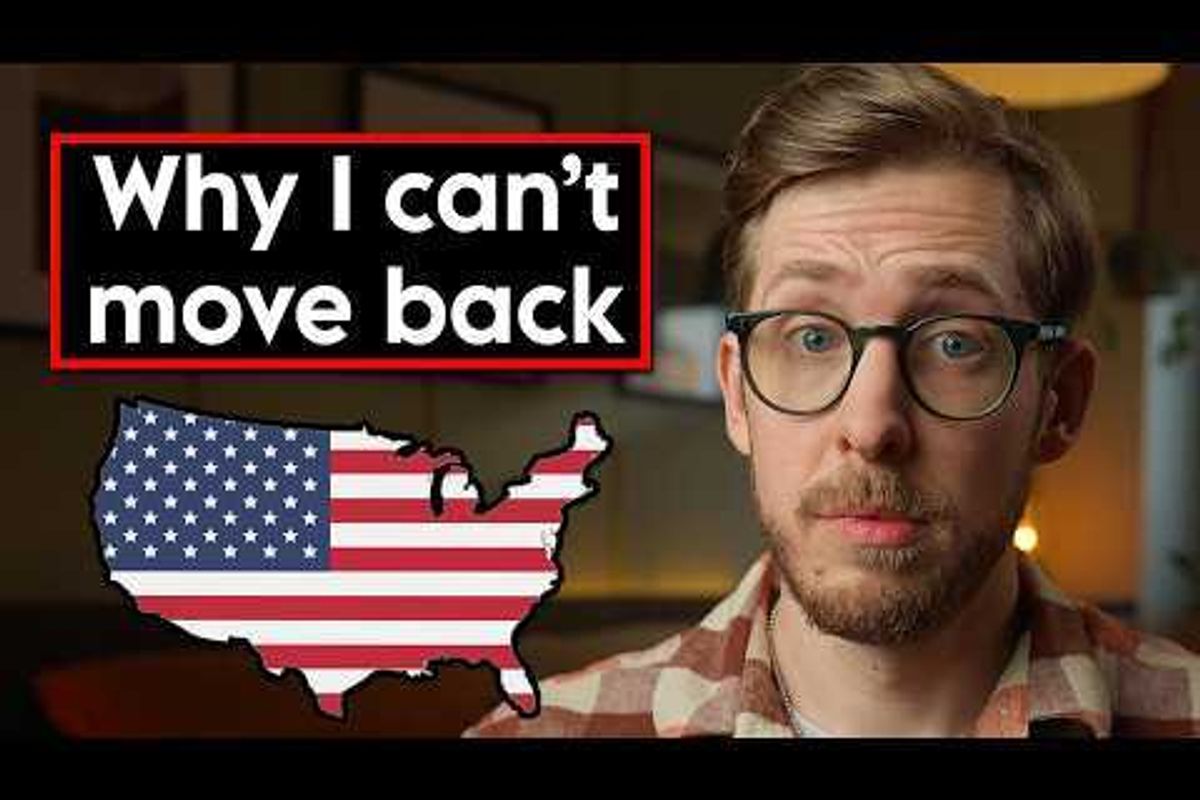
 The U.S. has a unique gun culture.
The U.S. has a unique gun culture. It's much easier to get around without a car in Europe.
It's much easier to get around without a car in Europe.  The U.S. is an outlier in the world when it comes to healthcare costs.
The U.S. is an outlier in the world when it comes to healthcare costs.  Europeans get far more generous paid leave than Americans do.
Europeans get far more generous paid leave than Americans do. Work-life balance is something a lot of Americans struggle with.
Work-life balance is something a lot of Americans struggle with.

 Can we please get a "meet the dog" rule on airplanes?
Can we please get a "meet the dog" rule on airplanes? No matter your age, headphones to listen to things on a flight are a must.
No matter your age, headphones to listen to things on a flight are a must. One overhead bag per passenger until everyone's got their luggage settled.
One overhead bag per passenger until everyone's got their luggage settled.  Even if you know it by heart, please don't talk during the safety demonstration.
Even if you know it by heart, please don't talk during the safety demonstration.
 Russell Crowe in The Gladiator
Russell Crowe in The Gladiator 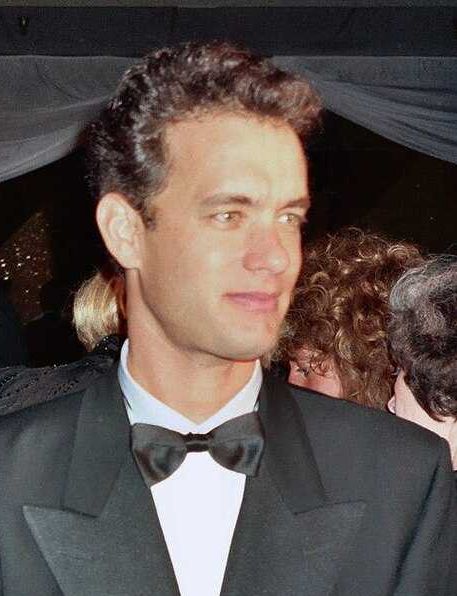 Tom Hanks at the 1989 Governor's Ball.Photo Credit: Alan Light, Wiki Commons
Tom Hanks at the 1989 Governor's Ball.Photo Credit: Alan Light, Wiki Commons Nicole Kidman in 2012
Nicole Kidman in 2012 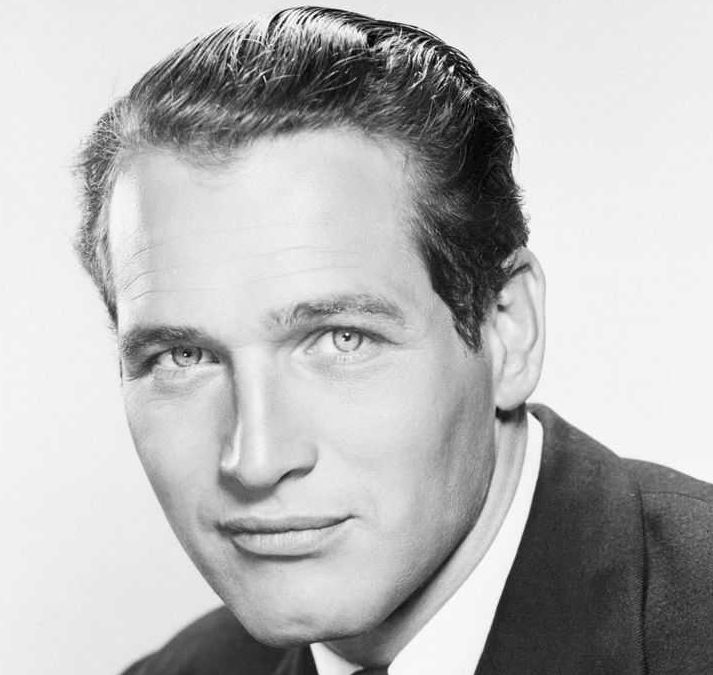 Paul Newman in 1958.
Paul Newman in 1958. 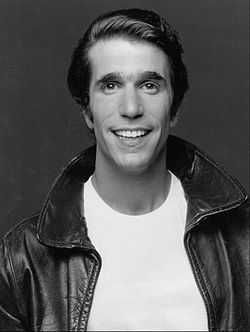 Henry Winkler as The Fonz in Happy Days 1976.J
Henry Winkler as The Fonz in Happy Days 1976.J 
 Security guard on duty with earpiece and cap.
Security guard on duty with earpiece and cap. Confused by the phone, she searches for answers.
Confused by the phone, she searches for answers. Kids exploring renewable energy with a solar panel and wind turbine model.
Kids exploring renewable energy with a solar panel and wind turbine model. Futuristic flying car soaring in a clear blue sky.
Futuristic flying car soaring in a clear blue sky. Scenic road trip past wind turbines in driverless car
Scenic road trip past wind turbines in driverless car Merging minds and machines: the future of brain-computer interfaces.
Merging minds and machines: the future of brain-computer interfaces. Double take: Two beanie-wearing men point at each other.
Double take: Two beanie-wearing men point at each other.